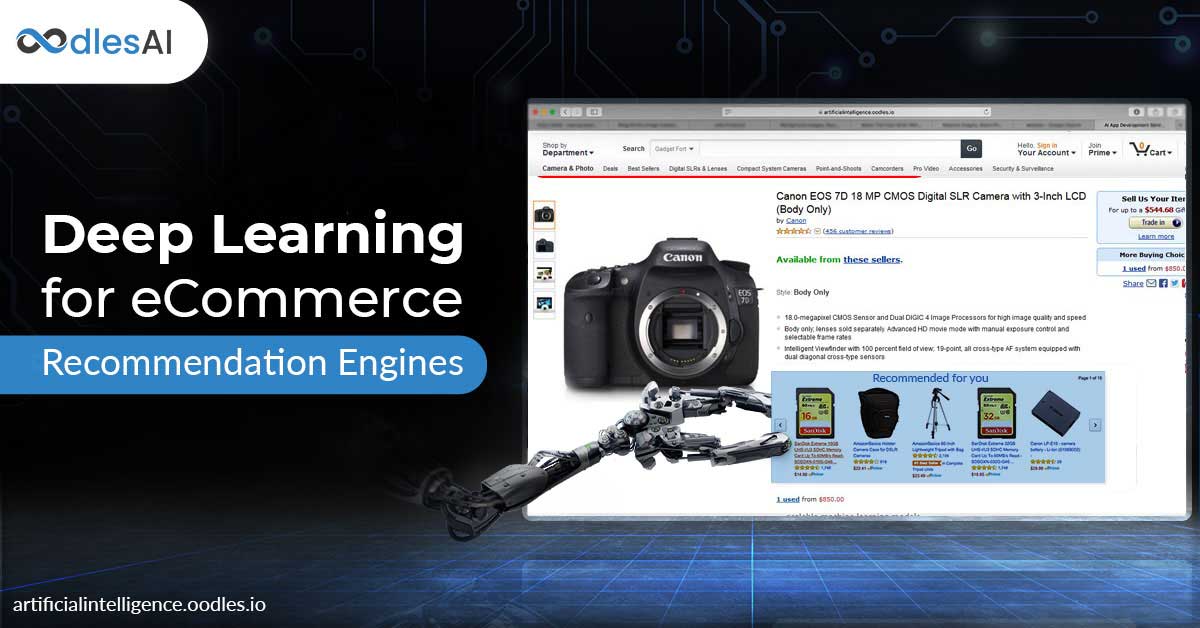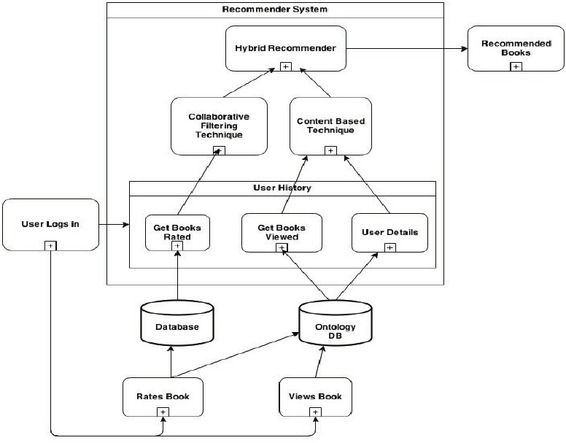How eCommerce can harness Deep Learning for Recommendation Systems
Sanam Malhotra | 13th December 2019

An explosion in the online demand for goods has triggered artificial intelligence applications for greater business value. At Oodles, we enable businesses to capitalize on growing consumer demands by harnessing next-gen technologies such as IoT, cloud computing, and AI. One of the most effective revenue-generating AI techniques for eCommerce businesses is recommendation engines. Although recommenders are already in heavy use for product recommendations, data analysts are now exploring deep learning for recommendation systems. Under AI app development services, deep learning makes a significant contribution to personalized user experience and optimum business growth.
This blog post explores some effective deep learning applications fo reCommerce recommendation systems.
eCommerce Use Cases of Deep Learning based Recommender Systems
Collaborative Filtering Recommendation Systems
Collaborative filtering is one of the most preferable techniques under neural network-based recommendation systems. The technique maps the preferences and recommendations of a specific user base to make recommendations to a similar target audience. The system assumes that people who bought similar items in the past are most likely to buy certain items in the future.
By analyzing the past behavior of like-minded users, collaborative filtering systems recommend products and services to improve cross-selling efforts. According to similar research, collaborative filtering based cross-selling banners can yield a 67% increase in eCommerce RPV.

Along with other recommendation methodologies, Amazon readily implements item-to-item collaborative filtering systems.
Also read- Transforming eCommerce Businesses with Robotic Process Automation
Content-based Recommender Systems
As the name suggests, content-based recommender systems sift through the textual content of eCommerce products. The method applies the one-user-at-a-time approach to analyze all the products bought by a certain user to make future recommendations. Once the system analyzes a user’s interests based on his purchase history, it personalizes the shopping experience by recommending appropriate items.

By mapping certain keywords from the product text, content-based filtering enables eCommerce businesses-
a) To make precise and accurate recommendations based on a single customer’s purchase history.
b) To scale the recommendation engine to more users and thereby boost ROI.
c) To suggest new products by training the algorithms with selective keywords and demographic details of specific customers.
Also read- Potential Business Applications of Sentiment Analysis Across Industries
Hybrid recommender system
The combination of collaborative and content-based filtering methodologies result in a hybrid recommender system. The system collaborates independent recommendations of two or more AI-powered engines to process a combined recommendation list. Hybrid systems work best while channelizing insights from large datasets to improve performance and accelerate business growth.

Hybrid systems address and support the following eCommerce operations-
a) Resolves the cold start problem which disables a system to generate valuable inferences from either user or item data. By combining multiple recommender systems, the hybrid model strengthens machine learning performance by analyzing more data and making valuable suggestions.
b) Experience collaboration via content by creating a user profile based on the rated items and product details. By correlating keywords and user history, hybrid systems can ease the matching of the right products with the right customers.
How does Oodles deploy deep learning for dynamic recommendation systems?
We, at Oodles AI, enhance eCommerce visitor’s experience and customer loyalty by developing efficient and accurate AI-powered recommendation engines. We deploy custom recommender systems both over the cloud and on-premise business infrastructures. Our AI team has hands-on experience in building machine learning models with large bandwidth to handle dynamic user preferences and interests.
Our recommendation system capabilities extend to the following methodologies-
a) Feature-based approach for personalized shopping experience powered by in-depth analysis of purchase histories and demographic knowledge.
b) Structure-based approach powered by outward and inward aggregation techniques to analyze users’ likes and dislikes to rate and recommend products.
c) Integration of recommendations with chatbots development services to augment business outreach efforts and meaningfully engage customers with valuable products and services.
Talk to our artificial intelligence team to know more about artificial intelligence services.



